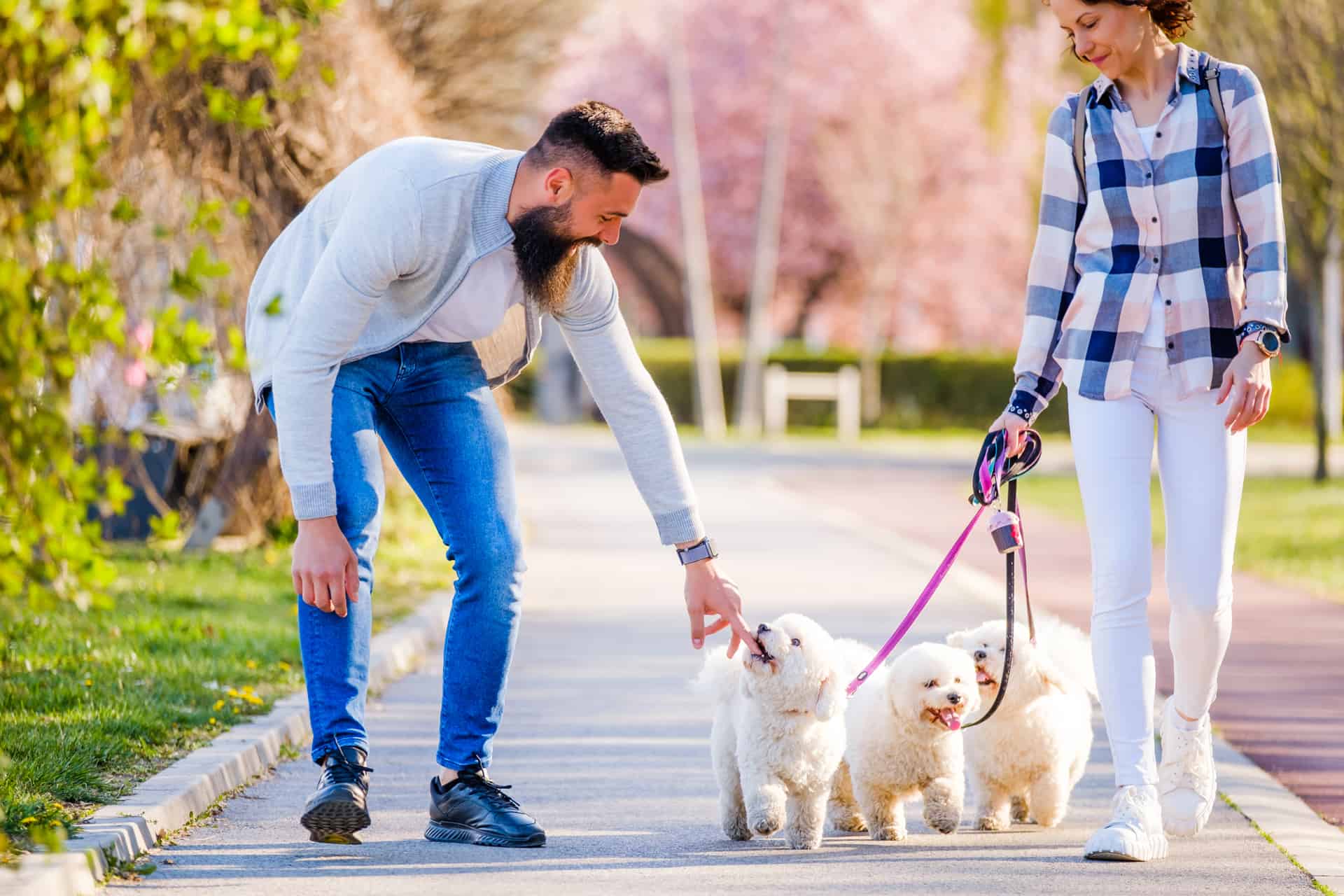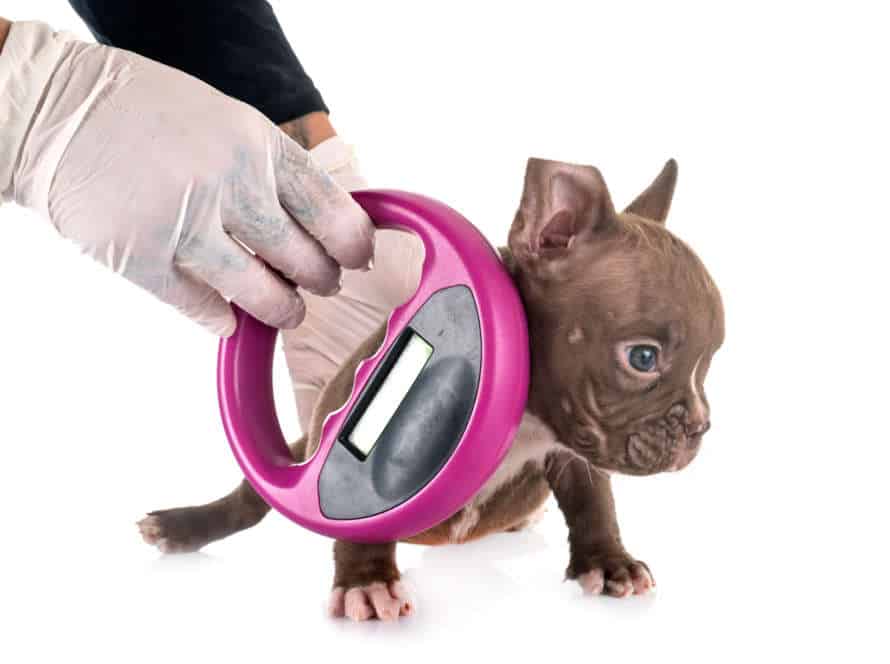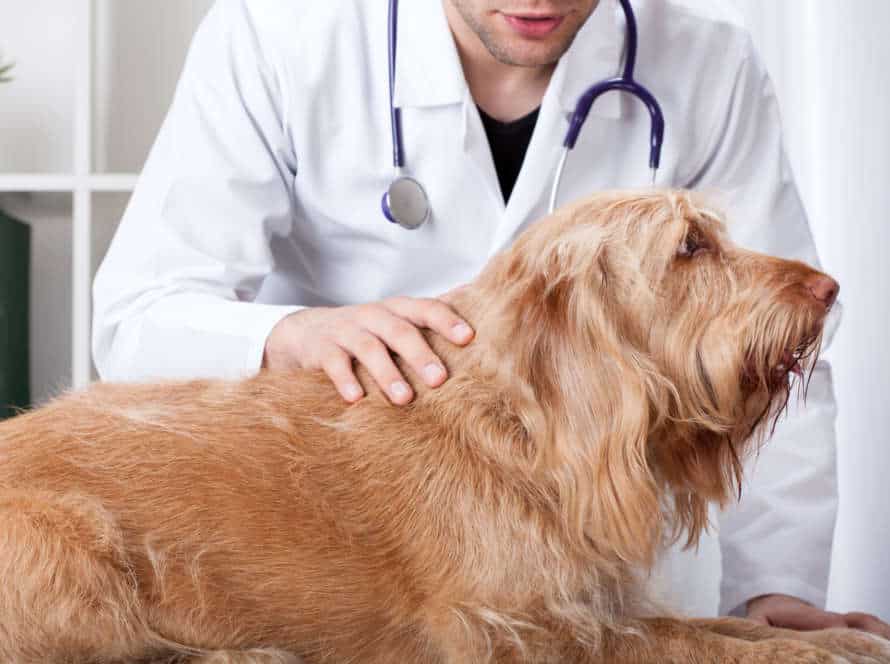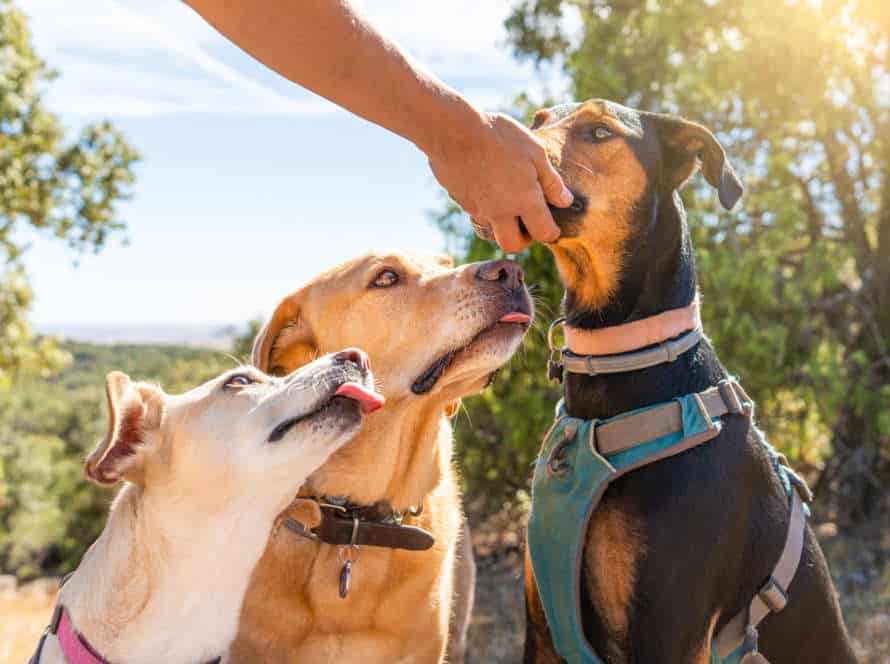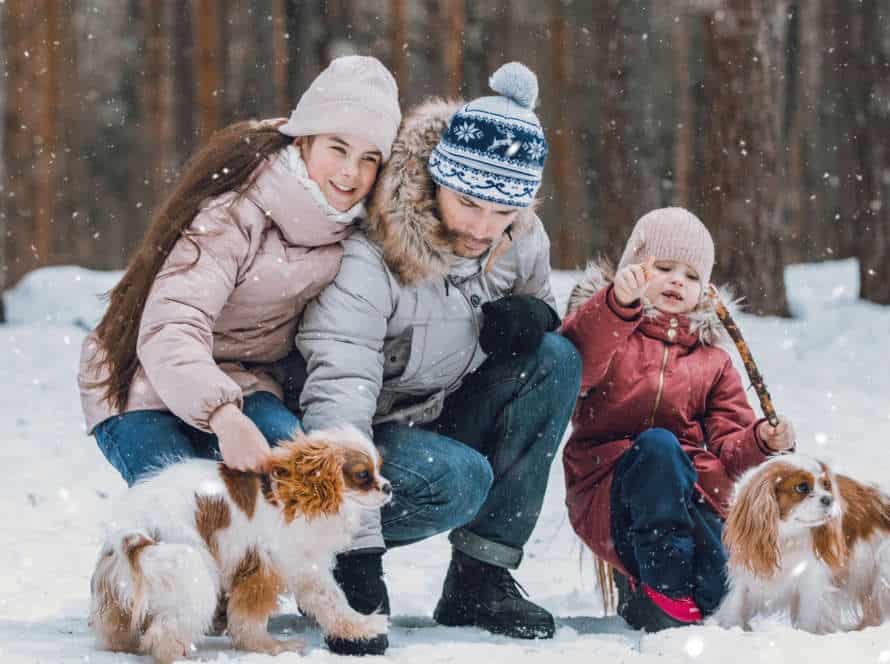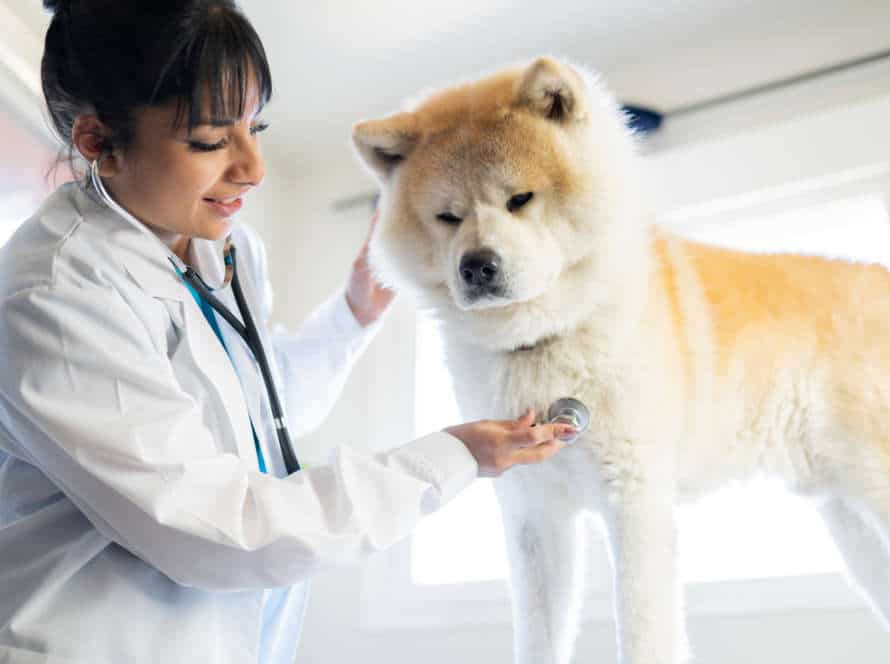Training Differences Between Puppies and Adult Dogs
Training pups and adult dogs are very different. Puppies are open to learning new habits, while adult dogs may take longer and more effort to train. Patience and positive reinforcement is needed for puppies. Adult dogs need more consistent consequences.
- Attention span: Pups focus quickly and may need shorter training, while adult dogs can handle longer.
- Socialization: Pups need it early, while adults take more time.
- Exercise: Puppies need more exercise and playtime than adults.
With the right approach, both pups and adult dogs can be great companions.
Establishing a Training Routine for Puppies
Puppies need training, but they are not mature like adult dogs. Sessions with puppies must be shorter and happen more often. Their attention span is short, so they need to learn commands quickly. To train them successfully, set up a routine and be consistent. Establish expectations early on.
Training a puppy’s basic skills
Training your puppy is essential! It helps them to learn basics such as obedience, house-training, and socializing. But, it’s different than training an older dog. You must be patient, consistent, and use positive reinforcement.
Here are some tips:
- Start with basic commands like sit, stay, and come.
- Keep sessions short and frequent – 5-10 mins, 2-3 times a day. Increase the length as pup progresses.
- Treats, praise, and play can motivate and reward good behavior.
- Be patient and consistent. Avoid punishment techniques. Never hit or yell at your pup.
Understand that training takes time and effort. It’s a gradual process to form a bond and a well-behaved companion.
Socializing a puppy with other dogs and people
Socializing your puppy is one of the most important steps of establishing a training routine. Here are some tips to help:
- Introduce low-stress situations first, and increase challenge gradually.
- Reward good behavior with positive reinforcement, to build your pup’s confidence.
- Always supervise when your puppy interacts with other dogs or people, for safety.
- Expose your pup to different environments, like parks, streets, and homes.
- Remember that puppies need specialized attention to develop good socialization habits – different from adult dogs.
Potty-training a puppy
Potty-training a pup demands patience, reliability and an organized training regimen that takes into consideration the special needs and behaviors of puppies. Here are some important differences to remember when teaching a pup:
- They have tinier bladders and weaker sphincter muscles, meaning they need to go out more often.
- Additionally, they are simply distracted and may ignore their training if not continually reminded.
- Punishing a pup for errors might bring about fear and anxiety, complicating potty-training.
To set up a routine for your pup, set a regular schedule for feeding, playtime and potty breaks. Utilize positive reinforcement, such as treats and compliments, to reward your pup for going potty outdoors. Lastly, be patient and consistent in your training attempts. With practice and time, your pup will discover to potty in suitable places.
Establishing a Training Routine for Adult Dogs
Advantage alert! Adult dogs comprehend commands and concepts faster than puppies. So, training is a must for adult dogs. It’s important for them to follow their owner’s commands and behave properly.
To help, here are some great techniques and strategies for setting up a training routine for an adult dog. Avoid costly correction or behavior modification methods and keep consistent!
Training adult dogs on new skills
Training adult dogs can be a bit different compared to puppies. It’s never too late to teach them something new. The key is to make a consistent routine. Here are tips for training adult dogs:
- Keep it short and do one skill at a time.
- Give treats and praise to motivate and encourage good behavior.
- Adjust according to the dog’s habits and preferences.
- Be patient and consistent. Change your approach if needed.
- Remember that adult dogs can still learn and grow. It can be rewarding!
Socializing adult dogs with other dogs and people
Socializing adult dogs can be tough. Unlike puppies, adult dogs may have fears and behavior issues. Setting up a training routine can help them socialize. Here’s how:
- Begin in neutral, calm places.
- Give them time to rest between sessions.
- Don’t force them into uncomfortable situations.
- Positive reinforcement is key.
In short, consistent training with positive reinforcement and avoiding stress is important for adult dog socialization.
Dealing with pre-existing behavior issues in adult dogs
Training adult dogs with behavior issues? Patience and consistent training are key. Tailor your approach to the pup’s needs. Adult dogs have routines and habits. Establish a training routine that fits their age and temperament. Positive reinforcement techniques can encourage good behavior. Here are tips:
- Stay consistent and set rules.
- Use treats and praise.
- Exercise and playtime keeps them active.
- Seek help from a trainer or behaviorist.
- Time and patience will help your pup overcome the issues.
Key Differences Between Training Puppies and Adult Dogs
Training a pup and an adult dog can be two distinct experiences. Puppies have shorter focus spans, may be more easily distracted and require more patience. On the other hand, adult dogs learn faster. They can absorb more instructions and are less likely to forget. Knowing these distinctions is critical to maximize your training sessions. Let’s explore the major differences between training puppies and adult dogs.
Attention span and concentration levels
Puppies and adult dogs differ in attention span and concentration levels. Puppies have shorter attention spans, making them harder to train. But, neurological developments from mom-dog during pregnancy help their mental and behavioral growth. Positive reinforcement is key for teaching puppies.
Adult dogs have longer attention spans and higher concentration levels. This makes for longer, more involved training sessions. Plus, they understand social cues and rules better.
Overall, patience, consistency and positive reinforcement are essential for successful training, resulting in a lifelong bond with your pup!
Physical abilities and energy levels
Puppies and adult dogs differ in physical abilities and energy levels. Puppies have less endurance and need more rest breaks during training. So, keep sessions short and engaging for their attention. Adult dogs have better stamina and can handle longer, intense training sessions. They may have already learnt some training habits, making behaviour modification tougher. Training techniques for adult dogs may focus on reshaping behaviour or correcting unwanted behaviour. Whereas, puppy training may concentrate on teaching commands and socializing skills.
Pro tip: Positive reinforcement is essential for successful training. Rewards-based training can help strengthen confidence and trust between you and your furry pal.
Fostering a close bond with the dog during training
Training puppies & adult dogs needs different methods. A key difference is the approach you take in fostering a close bond with your pup during training.
For puppies, focus on trust & a positive, reward-based relationship. Use lots of positive reinforcement like treats, praise & playtime.
For adult dogs, the focus should be on respect & authority. Use firm & consistent commands. Establish clear boundaries & rules. Praise good behavior & correct/ignore bad behavior in a calm & assertive manner.
Building a strong bond takes time & patience. Every dog is unique & needs observation & effective communication. This can improve the bond & relationship between you two.
Tips for Successful Training of Puppies and Adult Dogs
Training pups and grown-up dogs has its own challenges. It depends on the age and experience level of the pup. Patience and consistency are must-haves when training a puppy. For adult dogs, motivation is key. They may have already developed bad habits that are hard to break. Here are tips for successful training of puppies and adult dogs:
Consistency is key
Consistency is key when training puppies or adult dogs. This helps your pet understand what’s expected of them, leading to improved behavior and faster learning. Here’s what to keep in mind:
- Set clear, achievable goals.
- Positive reinforcement like treats or praise rewards good behavior.
- Be patient and consistent with commands.
- No physical punishment or negative reinforcement.
- Short, frequent training sessions keep focus and interest.
- Training is an ongoing process requiring commitment from both you and your pet.
- Training puppies and adult dogs have differences; puppies need more frequent sessions, while adult dogs may need to unlearn bad habits.
Use positive reinforcement techniques
Positive reinforcement is a great way to teach puppies and adult dogs. This means rewarding them when they do something good, not punishing when they are bad. Here are some tips:
- Use treats or toys to reward good behavior.
- Be consistent with commands and rewards.
- Training sessions should be short, frequent, and fun.
- Rather than punishing bad behavior, redirect your dog’s attention to something they can be rewarded for.
- For puppies, start with basics and move up from there.
- For adult dogs, consider their existing habits and behavior when making a plan.
- Be patient and persistent. Training takes effort, but it’s worth it!
Be patient and know when to take breaks during training sessions
Trainin’ yer furry companion requires patience and strategy, especially when you’re dealing with the difference between trainin’ puppies and adult dogs. One key point fer successful dog trainin’ is knowin’ when to take breaks and givin’ yer pet time to rest and recharge.
Puppies have shorter attention spans, so shorter trainin’ sessions work best. Rangin’ from 5 – 10 minutes. Adult dogs can handle longer trainin’ sessions, stretchin’ up to 20 or 30 minutes. Still, it’s crucial to know when to take breaks, even during shorter sessions. If ya spot yer pup losin’ interest, gettin’ distracted, or behavin’ badly, that’s a sign to take a break.
During these breaks, let yer pet relax, play, or engage in activities that will help ’em refocus. Avoid forcin’ yer pet to train when they’re not in the right mental state; this could lead to harmful effects or negative experiences. Be sure to keep yer expectations realistic and use positive reinforcements to make the trainin’ sessions simpler fer yer doggos.
Pro tip: Break up yer trainin’ schedule into smaller, more achievable goals and reward yer pet with love and treats to encourage good behavior.
Frequently Asked Questions
Q: Is it easier to train a puppy or an adult dog?
A: Puppies are generally easier to train than adult dogs because they have a more open and receptive mind. However, adult dogs can still learn new things with patience and consistency.
Q: Are there any differences in the training methods for puppies and adult dogs?
A: Yes, the training methods differ because puppies require more frequent and gentle training sessions, while adult dogs need more consistent and firm training.
Q: How long does it take to train a puppy versus an adult dog?
A: It depends on the individual dog and the training goals, but generally, it takes longer to train an adult dog than a puppy.
Q: Is it possible to train an adult dog if they have not received any training before?
A: Yes, it is possible to train an adult dog, but it may require more time and patience. The key is to start with basic training and be consistent with your efforts.
Q: Can the same training techniques be used for both puppies and adult dogs?
A: While there may be some similarities in the training techniques, it is important to adapt the training approach based on the age and experience level of the dog.
Q: What are some common training differences between puppies and adult dogs?
A: Puppies may require more socialization training and basic obedience training, while adult dogs may need more advanced obedience training and behavior modification training.

